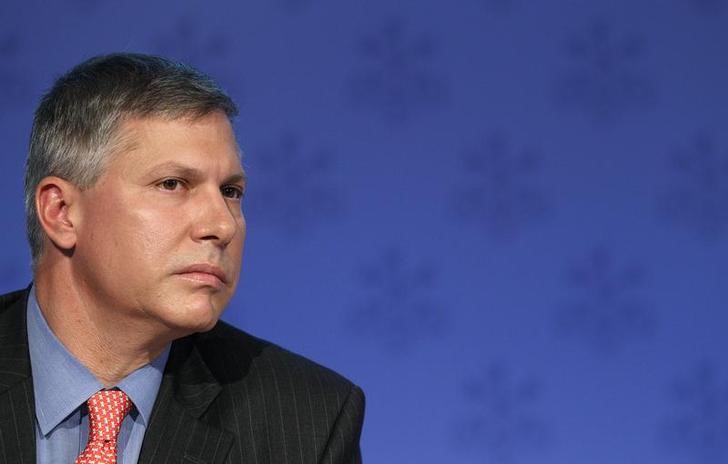By Elizabeth Dilts
NEW YORK (Reuters) - For the first time since UBS Group AG bought PaineWebber 16 years ago, the world's largest wealth manager's U.S. business has a smaller workforce than an independent rival, Raymond James Financial.
But does Tom Naratil, president of UBS's Wealth Management Americas, care?
"No. We don't," Naratil told Reuters on Wednesday. "For six years, we've said it was all about the productivity of advisers and not the number of advisers."
In June, Naratil launched plans to cut the firm's costly recruiting efforts by 40 percent, streamline broker's compensation and eliminate some middle management.
The cuts are part of a broader effort to boost lagging revenue. Some of the money saved from recruiting will go to pay existing advisers bonuses for growing their business.
It is already working, Naratil said, pointing to the record revenues, income and pre-tax profit margins reported in the third quarter.
There are costs to leaving the recruiting game amid a decade-long trend of advisers moving from Wall Street brokerages to independent outfits, like Raymond James. St. Petersburg, Florida-based Raymond James reported it had 7,146 advisers across its employee and independent channels in the third quarter, compared to UBS's 7,087.
"We don't need to wake up every morning and pray for the independent adviser model to fail in order for us to succeed," said Naratil, who took on the top job in January.
The cuts, combined with an expected increase in the Federal Reserve's interest rate in December will help the firm reach its goal of 15-25 percent pre-tax profit margins, Naratil said.
Additionally, the uncertainty for some investors created by the surprise election of Republican Donald Trump as U.S. president is also good for business, said the former PaineWebber bond trader.
A UBS survey of 1,200 wealthy investors found that half missed money-making opportunities because they raised cash or moved into conservative investments ahead of the election.
"Any kind of uncertainty that people have as a result of geopolitical events or domestic events is good for the advice markets," said Naratil, who declined to say whether UBS had been in touch with Trump's transition team.
Naratil also declined to comment on the firm's plans to comply with the Labor Department's Fiduciary Rule, which is designed to protect retirement savers by requiring that brokers put their clients' best interests ahead of their own bottom line. It is set to take effect in April. Rival firms like Morgan Stanley (NYSE:MS) and Bank of America's Merrill Lynch announced their plans last month.
It is unclear if Trump will try to delay implementation of the rule.
Regulators have also narrowed in on the securities industry since the sales scandal at Wells Fargo (NYSE:WFC) & Co's retail bank, which opened 2 million accounts for customers without their knowledge.
Groups like the Financial Industry Regulatory Authority have ordered brokerages to hand over information about bonuses that brokers can earn for meeting sales targets.
Naratil said UBS has examined its sales goals and bonuses.
"We don't see anything similar" to what went on at Wells Fargo's retail bank, Naratil said. "I don't think it is a problem across the wealth management industry as a whole."
